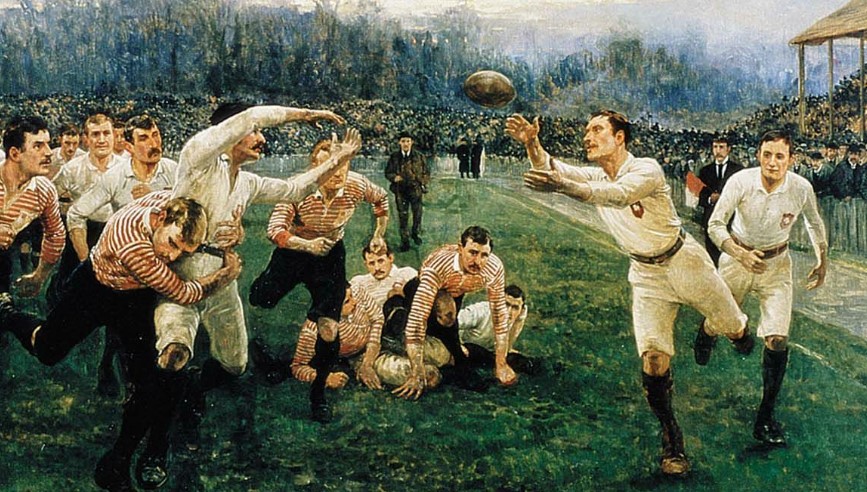The introduction of sports into British public schools in the 19th century marked a profound change in education and British society at large. This period saw the birth of organized sports as we know them today and laid the groundwork for the global spread of many sports, including football, rugby, and cricket.
Origins and Motivations
Education in 19th-century Great Britain was dominated by public schools, which, despite their name, were private institutions intended for the social elite. Until this time, physical education was not considered an essential part of education. However, throughout the century, there was a paradigm shift, influenced by ideas about “mens sana in corpore sano” (a healthy mind in a healthy body) and the desire to prepare young people to lead in the British imperial era.
Key Figures
Among the most influential figures in the introduction of sports in these schools were Thomas Arnold, head of Rugby School, and Charles W. Alcock, who was key in the development of football and cricket. Arnold promoted sports as a means to develop character, morality, and cooperation among students. Under his influence, rugby became not just a sport but also an integral part of values education.
Alcock, for his part, was a pioneer in organizing sports competitions, including the FA Cup in football and the first international football match between England and Scotland. His vision helped standardize the rules of sports and promote sportsmanship.
Pioneer Schools
Several public schools played a fundamental role in this evolution. Among them are:
- Rugby School: Known as the cradle of rugby, this school saw its name become synonymous with one of the world’s most popular sports.
- Eton College: With a long tradition in rowing and football competitions, Eton was one of the main promoters of the concept of sportsmanship and fair competition.
- Harrow School: In addition to its rivalry with Eton in various sports, Harrow was an important center for the development of cricket.
- Winchester College: It contributed significantly to the evolution of football, developing some of the first rules that would later influence the modern rules of football.
Impact and Legacy
The impact of introducing sports into British public schools went beyond educational institutions. It helped establish sports as an important part of British culture and fostered values such as teamwork, integrity, and fair competition. Moreover, it contributed to the global spread of sports, especially during the imperial era, when the British brought their sports to other parts of the world.
This era also saw the origin of many competitions and trophies that are still highly valued today, such as the FA Cup in football or international challenges in rugby and cricket. The influence of public schools on organized sports extended to physical education in schools of all types, establishing sports as a key piece of comprehensive education.
In conclusion, the introduction of sports into British public schools in the 19th century not only transformed education and sports within the country but also had a profound impact worldwide. It was a key moment when sports began to be seen not only as a recreational activity but as a vital tool for the development of character, health, and sociability.
Development and Standardization of Sport
In addition to promoting values and personal development, this movement towards sports in schools played a crucial role in standardizing the rules of games. Before this era, many sports were played with local and highly variable sets of rules. The need to compete among different schools required a unified set of norms, which facilitated the organization of regular competitions and the comparability of results. This process culminated in the creation of governing bodies for various sports, such as the Football Association (FA) in 1863 and the Rugby Football Union (RFU) in 1871.
Physical Education and Well-being
The focus on sports in public schools also had important implications for public health and physical education. It recognized the importance of regular physical activity for maintaining health, a notion that continues to be central in physical education today. This helped combat health problems associated with sedentary lifestyles, especially among the rapidly growing urban working classes during the Industrial Revolution.
